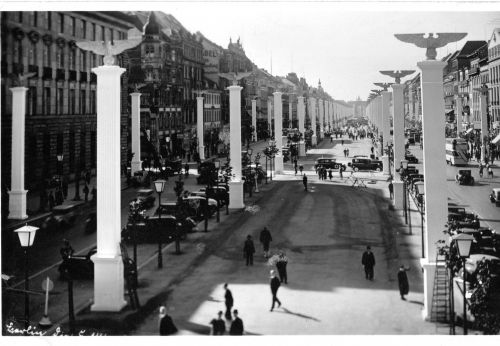Hertha Beese - Berlin Housewife

Berlin - Unter den Linden Strasse - (Chris Webb Private Archive)
We knew that the concentration camps existed. We also knew where they existed, for example Oranienburg just outside Berlin. We sometimes knew which of our friends were there and we also knew of the cruelties in them right from the beginning. We heard what happened in those camps. I cannot say who the source of the information was, I can only say that one person passed it on to another and that we believed it to be true - I mean those of us in the Resistance.
I don't think that the general population would have believed it all had they been told, or had heard about it from somewhere. The camps were so cruel that one could not simply could not imagine that anybody could be so bestial if oneself was decent. We knew that lampshades were made from human skin, we knew that people starved to death and that newborn babies were hidden.
In the flat underneath ours lived a Jewish family. The only reason they had not yet been persecuted and taken away was that the father was Italian and belonged to Mussolini's Party. But when we ourselves faced more and more difficulties the wife began to feel insecure and was scared that they might take her away, despite the Italian connection and she therefore left.
So their flat became empty and I begged that it should not be handed over to the landlord since we still hoped there would be a total collapse and we would all be rid of our difficulties. I looked after the empty flat and one night, it must have been around midnight, the doorbell rang. I opened and there stood in front of me a Jewish couple.
That was how I began to help persecuted Jews. All of a sudden I had entered an invisible circle of people who smuggled Jews about. As soon as one hiding place had been detected they were quickly passed on. They would always move about by night. I never found out who it was who sent them to me in the first place. Some decent people.
The problems started with the feeding of the Jewish people since they neither had food-rationing cards nor very often any money. So we in turn had to make use of friends who exchanged their smoking cards for the odd potato or bread, or a friend would come and leave a bit of food. But all this was so illegal that names, sources or contacts had to remain unknown.
Sources
Richard Holmes, The World At War, Ebury Press, 2007
Photograph: Chris Webb Private Archive
Thanks to Robert Parzer
© Holocaust Historical Society April 24, 2020

